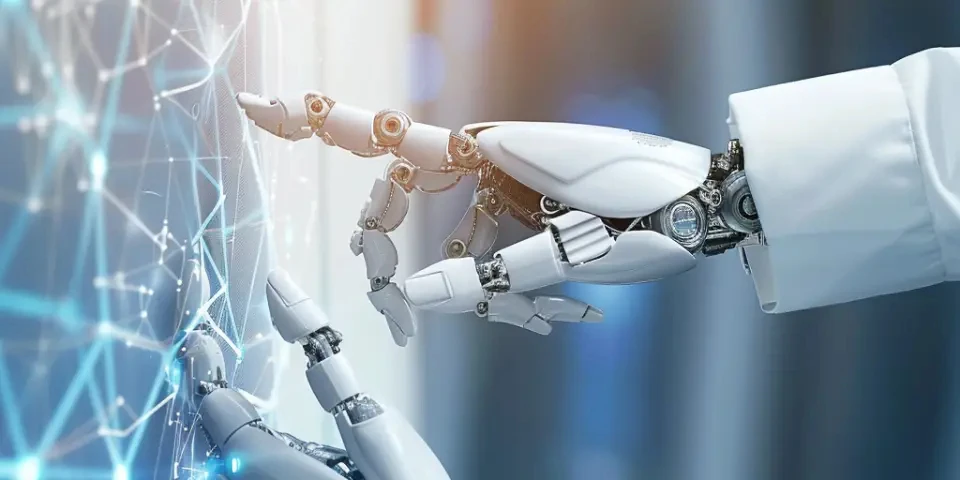Empowering Education AI-driven Tutoring Systems for Interactive Learning
Education is a fundamental pillar of society, shaping the future of individuals and nations. However, traditional teaching methods often struggle to cater to the individual needs and learning styles of students. With the advent of Artificial Intelligence (AI), a new era of interactive learning has emerged. AI-driven tutoring systems have the potential to revolutionize education by providing personalized and engaging experiences for students. In this article, we will explore the various aspects of AI-driven tutoring systems and their impact on education.
1. Personalized Learning
AI-driven tutoring systems utilize machine learning algorithms to analyze student data and tailor the learning experience to each individual. These systems can identify strengths, weaknesses, and learning styles, enabling personalized content and adaptive feedback. This personalization fosters a deeper understanding of concepts and enhances overall academic performance.

2. Adaptive Feedback
One of the key advantages of AI-driven tutoring systems is their ability to provide real-time feedback to students. These systems can analyze student responses, identify misconceptions, and provide targeted explanations. By adapting the feedback based on individual needs, students can overcome difficulties more effectively and refine their understanding of the subject matter.
3. Interactive Simulations and Virtual Reality
AI-driven tutoring systems often incorporate interactive simulations and virtual reality (VR) technologies to enhance the learning experience. Simulations allow students to experiment, explore concepts, and visualize abstract theories. VR takes it a step further by immersing students in virtual environments, providing hands-on experiences that are otherwise impractical or dangerous. These technologies make learning engaging, memorable, and applicable to real-world scenarios.
4. Continuous Assessment
Through continuous assessment, AI-driven tutoring systems can evaluate student performance on a regular basis. This assessment goes beyond traditional exams and assignments, as it can occur during the learning process itself. By monitoring progress, identifying areas of struggle, and providing timely interventions, teachers can better support their students and guide them towards improved learning outcomes.
5. Instant Accessibility
Unlike traditional tutoring methods that rely on physical presence and scheduling, AI-driven tutoring systems offer instant accessibility. Students can access the system at any time, from any location, allowing for flexible learning schedules. This convenience accommodates the needs of both traditional students and lifelong learners, ensuring education is readily available to everyone.
6. Collaborative Learning
AI-driven tutoring systems facilitate collaborative learning by connecting students with peers and experts from around the world. Through online forums, virtual classrooms, and social networking features, students can engage in discussions, share ideas, and receive guidance from a global community. Collaborative learning broadens perspectives, promotes creativity, and fosters a sense of belonging.
7. Intelligent Content Creation
AI-driven tutoring systems have the ability to generate personalized content, quizzes, and assessments tailored to the individual needs of students. These systems can analyze vast amounts of educational resources, curricula, and student data to create interactive and engaging learning materials. Intelligent content creation saves teachers' time, allowing them to focus on individualized support and guidance.
8. Ethical Considerations
While the potential benefits of AI-driven tutoring systems are immense, ethical considerations must be addressed. Data privacy and security are paramount in ensuring student information is protected. Additionally, there is a need for transparency in algorithms and the avoidance of bias. It is crucial to establish ethical guidelines and regulation to safeguard the integrity of AI-driven education.
Frequently Asked Questions:
1. Can AI-driven tutoring systems completely replace human teachers?
No, AI-driven tutoring systems are designed to enhance, not replace, human teachers. These systems act as valuable tools that support teachers in personalized instruction, assessment, and content creation. The human touch and expertise of teachers will always be indispensable in education.
2. How can AI ensure personalized learning for each student?
AI algorithms analyze data such as performance, learning styles, and preferences to provide tailored content, adaptive feedback, and individualized guidance. By continuously learning and adapting, AI-driven tutoring systems can deliver personalized learning experiences for each student.
3. Are AI-driven tutoring systems suitable for all subjects?
AI-driven tutoring systems have proven effective in various subjects, from mathematics and science to languages and humanities. However, some subjects that heavily rely on subjective interpretation or physical interaction may require more human guidance and intervention.
Explore your companion in WeMate